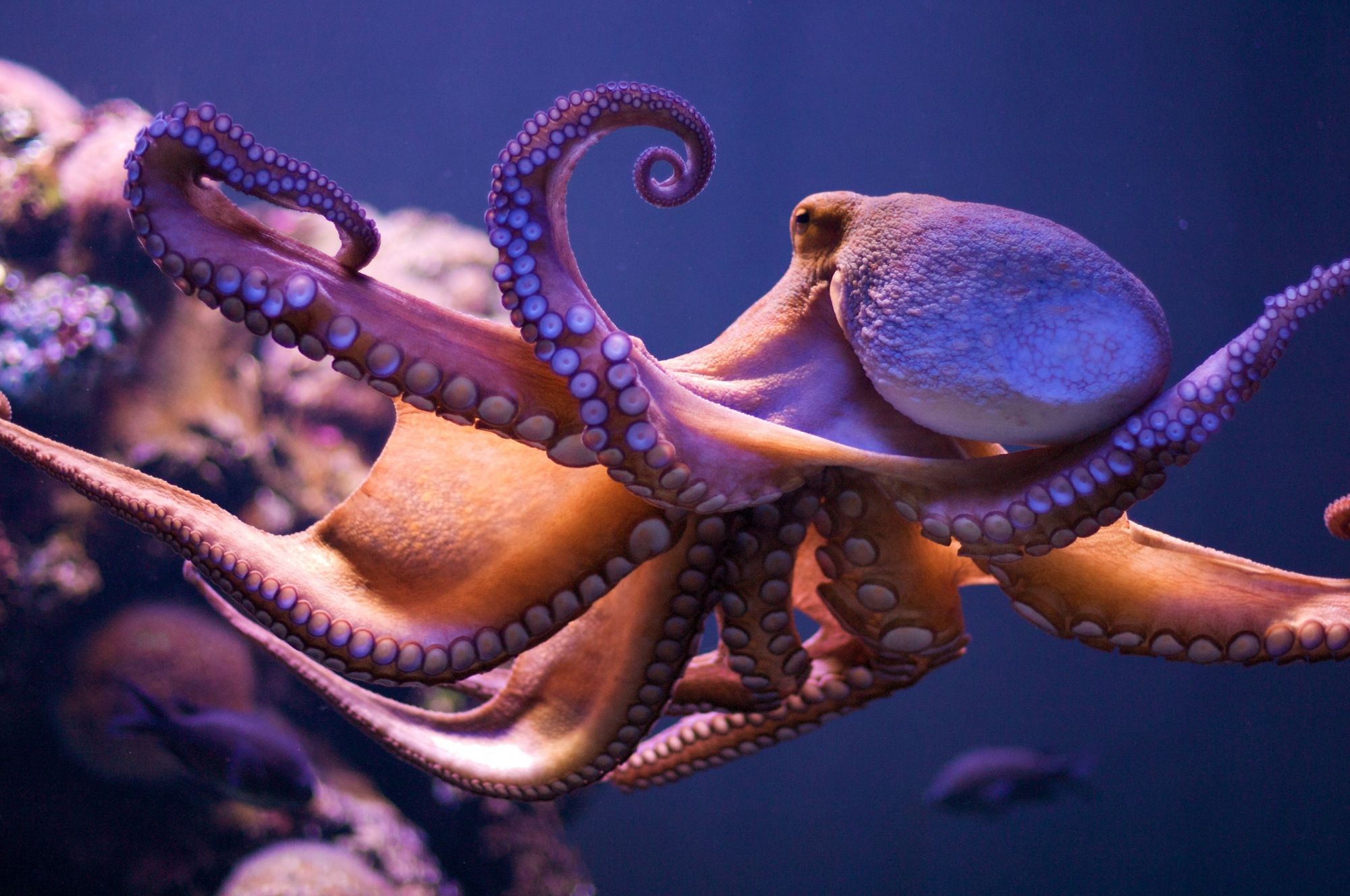5 facts you don’t expect about the octopus!

Tenerife’s water is home to many marine species. Their secrets are well kept and we always try to understand them better through science and diving. One of the surprising animals that live in the Canary Islands is the octopus which is really special for several reasons you don’t even imagine! Did you know that…
- …octopuses have beaks like parrots? They use this powerful and sharp beak to protect themselves and to eat crabs, clams, shrimps… This is the only hard part of their body and it is located under their head, between tentacles. If their tentacles are cut, they grow back.
- …octopuses are really intelligent? They are considered as the most intelligent of all invertebrates. These animals learn quickly and have the sense of observation. They can recognize objects and differentiate them. Some experiments have shown that they have a short and long term memory and they can solve small problems like untangling a jar in order to get food. They can manipulate objects and use tools to defend and protect themselves like throwing stones or hiding in shells.
- …octopuses can move quickly by propulsing themselves like a plane with propulsion? That is how they escape from predators and hunt. They also expel a dark cloud of ink so the predators don’t see or smell anything. Their flexible body allows them to hide in very small places that predators can’t reach. Octopuses change colours according to their state of mind and environment to be less visible when they are hunting or feeling in danger.
- …they have more than one heart? In fact they have 3 hearts! The biggest flows oxygenated blood to the whole body while the 2 smallest provide blood through the gills. The blood is not red like other living creatures but blue, thanks to its high level of copper, which is why octopuses have a bluish colour.
- …the female dies after pregnancy? After they give birth, the octopuses feed, clean and protect their eggs for 6 weeks without eating and taking care of themselves. After that time, the babies hatch and the mothers die from exhaustion.
